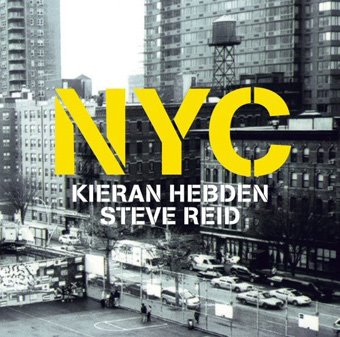11.

Kieran Hebden & Steve Reid – NYC
NYC in particular only because, if I absolutely had to choose, maybe that’s the one that’s the easiest inroute for someone else, but also coherent, rewarding, enjoyable; it’s got the qualities of the rest of the work, it delivers a bit more maybe, but it’s still wild and free. But really, just put all four [Kieran Hebden & Steve Reid album] pictures in a row! If I’d done this in order of importance, this would have been number one, definitely. It’s my favourite thing Kieran’s ever done. But also it’s the most perfect fusion of electronics and jazz; although I love quite a lot of other people who try to do that, this was the one that got it the most right, it just felt the most natural. Every time I saw them play was one of the best gigs I’d ever seen, and obviously a massive influence on how I’ve decided to play live, and how I recorded the record, a lot of things I was thinking about. I had a lot of good ideas during those Kieran and Steve gigs, actually, looking back. Every time it comes on random play it’s tinged with sadness that Steve’s gone now.
[In the live setting] that connection [between them] got so visible. And the way Kieran managed to make electronic instruments into something you could play in a real enough way that a connection was possible, that’s his great acheivement in that. Kieran is taking the part of Ornette or something [laughs] in that, and he really delivered, he did his bit to such a brilliant level in everything in that [project]. Live, you saw just how real it is; in the context of all these other records which have been manufactured and sculpted to please you on your first listen, those albums without explanation do seem like an aggressive act.
I think they also shaped how Kieran now records: just going in for a day, just get it done and record it all. That’s sort of his production trademark now, and how he got such a great result on the Omar Souleyman album and those recordings of RocketNumberNine. So although it led him to get quite negative press, that was the point where I decided that I wouldn’t pay much attention to journalists any more, having read the reviews of that [laughs]. It’s an example of how, in this sort of cycle of attention, you can’t judge a record like that. Any opinion on it is sort of meaningless in that context. It’s only after time, when people realise that it might not just lay everything out for them on a plate, that they might have to forgive it a little bit.


